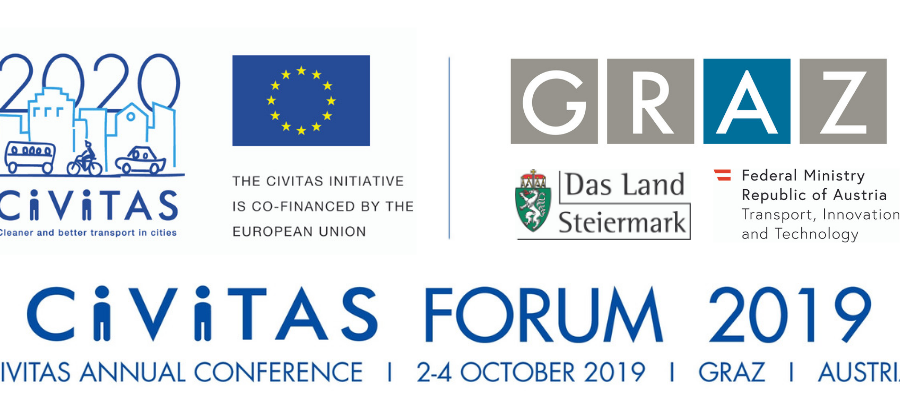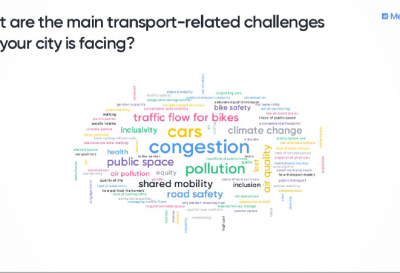
MOMENTUM hosts open session at CIVITAS Forum 2019 in Graz
The MOMENTUM project held an open session at the CIVITAS Forum 2019 in Graz. On the agenda, the challenges and opportunities created by new mobility services, the existing regulatory frameworks and future scenarios for their successful implementation.
MOMENTUM project coordinator Irene Blazquez, from Madrid’s public transport operator EMT, opened the session with an an overview of the project’s objectives and ambition. In the first part of the session, several city representatives discussed how new mobility services are currently integrated in their local context. The cities of Tallinn, Turku, Twente and Budapest were on stage, moderated by Polis Secretary General Karen Vancluysen. The audience actively contributed to the session thanks to an interactive polling tool.
Modal shift was a central topic of discussion. All city representatives acknowledged that reducing the total share of car trips must remain the key objective of local authorities when taking decisions on innovative mobility services and concepts, such as micromobility and Mobility as a Service. For that reason, establishing effective monitoring and evaluation mechanisms of new mobility services is essential.
Safety, the cities agreed, is a major challenge to face when talking about new mobility services. On the one hand, providing safe infrastructure for sustainable mobility is crucial, as shown by the example of Dutch cities; on the other, new rules are needed to reduce the safety risks linked with the roll-out of e-scooters and other forms of micromobility.
The cities of Paris, London, Dublin and Lisbon joined the discussion on regulatory frameworks. The interaction between different governance levels was mentioned as a key topic to address, since in most cases road codes are decided at the national level. The extent to which cities can regulate new mobility services is currently under discussion in some countries, such as France.
Local authorities shared their approaches in setting rules and guidelines for a successful integration of new mobility services in their urban mobility ecosystems. Main measures include the introduction of codes of conduct, guidance on safety and public space usage for users, agreements on data sharing, and “soft” regulatory approaches such as regular and transparent exchanges with operators.
Discussions on the challenges and opportunities and regulatory frameworks for new mobility services laid the ground for the last part of the open session dedicated to future scenarios, moderated by NOMMON’s Javier Burrieza. In this part, the conditions for the successful implementation of new mobility services were discussed. Several alternative futures were presented to reflect the possible challenges transport and planning tools and techniques will face in the next decades. Connected and Automated Vehicles and Urban Air Mobility were identified as the mobility solutions that will pose the most important challenges to transport systems in the coming years. E.g how vehicles fly and where they land will probably depend on different authorities.
In addition to the open session, the MOMENTUM City Pool kicked-off at the CIVITAS FORUM.


